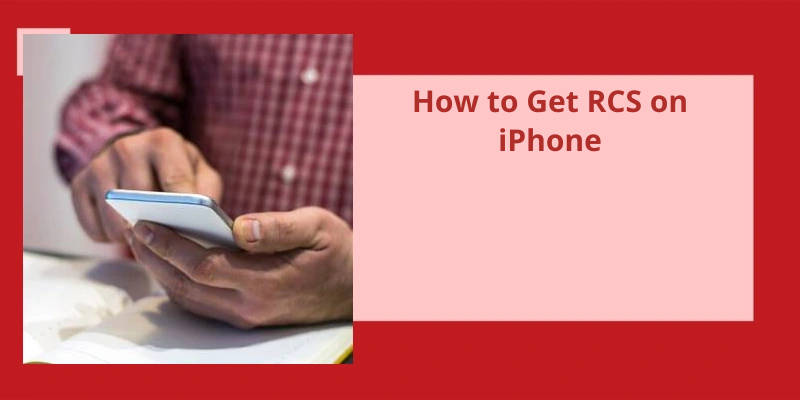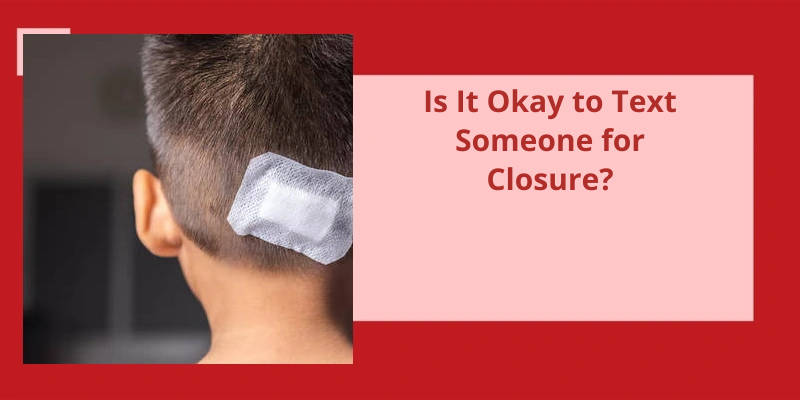No Response to Compliment: Why It Happens and How to Handle It. The inability to respond to a compliment can stem from various underlying factors, each person having their own distinctive reasons. Alternatively, some people may genuinely struggle to formulate a suitable reply, finding it challenging to express their gratitude or unsure of the appropriate response in certain social contexts. Nevertheless, by acknowledging the potential reasons behind the lack of response, one can adopt effective strategies to navigate these situations with grace and understanding.
Why Doesn’t He Say Thank You When I Compliment Him?
When we offer a compliment to someone, whether it’s on their appearance, achievements, or character, we typically expect a simple “thank you” in response. However, there are instances when the person being complimented remains quiet, leaving us wondering why there was no response. There can be various reasons for this, but one common explanation is that some people feel uncomfortable receiving compliments. They may not know how to respond or may not feel deserving of the praise. In these cases, their silence shouldn’t be taken as a sign that they didnt appreciate the compliment.
It’s also crucial to understand that not every compliment is genuine. Some people may offer compliments with ulterior motives or insincerity. In such cases, the receiver may withhold gratitude as a means of protecting themselves from potential manipulation or deceit. It’s essential to be discerning when it comes to compliments and evaluate the intentions behind them.
Ultimately, the act of expressing gratitude is subjective. It’s not our place to dictate how others should react. Instead, focus on offering genuine compliments and practicing empathy towards the recipients individual preferences and comfort levels. If youre unsure about their response, don’t hesitate to communicate openly and kindly about the situation. By doing so, you can foster better understanding and strengthen your relationship with others.
However, when it comes to compliments, some individuals struggle to respond appropriately. While it may not necessarily be considered “rude” to not respond to a compliment, it can inadvertently convey arrogance or dismissiveness. Ignoring compliments can potentially impact social interactions and relationships. Therefore, understanding and practicing the art of receiving compliments graciously is essential.
Is It Rude to Not Respond to a Compliment?
Is it rude to not respond to a compliment? Many would argue that it is. The proper response to a compliment is a simple, genuine “thank you.”. By not acknowledging a compliment, one may come across as dismissive or arrogant. Ignoring someone who takes the time to say something nice to you can create an air of superiority, which isn’t a favorable trait.
That being said, if you find yourself in a situation where someone doesn’t respond to your compliment, it’s essential to remain understanding and not jump to conclusions. It’s good to approach the situation with empathy and consider that they might have their own reasons for not responding.
If you’re the one who receives a compliment and you struggle with accepting or responding to them, it may be helpful to practice some simple techniques. Recognizing and valuing the positive feedback can be an opportunity for personal growth. Additionally, practicing responses such as a genuine “thank you” or a simple smile can help create a positive interaction even if youre not entirely comfortable with the attention.
While it may be considered rude by many to not respond, it’s equally important to give others the benefit of the doubt and approach the situation with kindness and understanding.
How to Gracefully Accept a Compliment
Accepting a compliment can sometimes be challenging, but it’s important to handle it graciously. When someone compliments you, it’s a reflection of their appreciation and admiration for something you’ve done or achieved.
To gracefully accept a compliment, start by expressing genuine gratitude. Say “thank you” with a smile and maintain eye contact. Avoid downplaying or dismissing the compliment, as it can undermine the person’s positive intention.
Another way to accept a compliment gracefully is to acknowledge the specific aspect that was praised. For example, if someone compliments your presentation skills, you could reply with something like, “I’m glad you found my presentation engaging. I put a lot of effort into making it informative and captivating.”
It’s also important to remember that accepting compliments doesn’t make you arrogant or conceited. By appreciating and acknowledging the positive feedback, you’re showing respect for the giver and valuing their opinion.
Lastly, reciprocating with a compliment can help maintain a positive interaction. After accepting the compliment graciously, you can express admiration for something the person has done or compliment them back. This creates a mutual appreciation and fosters a positive connection.
It’s important to note that there could be various reasons why men might struggle to accept compliments gracefully. Among these reasons, one possible explanation could be linked to feelings of insecurity or self-doubt. Despite this, understanding the factors behind this behavior can shed light on the complex dynamics of self-perception and societal expectations.
Why Do Men Ignore Compliments?
Why do men ignore compliments? It’s possible that a guy who doesn’t take compliments well might be experiencing feelings of insecurity or self-doubt. When someone receives a compliment, especially about their appearance or achievements, it can trigger doubts about their self-worth or create pressure to maintain a certain image. Men, like anyone else, can struggle with accepting praise, as it may challenge their perceived flaws or highlight areas where they lack confidence.
Moreover, societal expectations and traditional gender norms can play a role in mens response to compliments. Men are often conditioned to be strong, independent, and self-assured. Expressing vulnerability or accepting compliments might be seen as a sign of weakness or a threat to their masculinity. This pressure can lead to discomfort or deflection when receiving positive feedback.
In addition, past experiences and personal background can shape a persons ability to accept compliments. If someone has faced criticism or harsh judgment in the past, they may be more inclined to question or dismiss compliments. Negative experiences can erode self-esteem and make it difficult for individuals to internalize positive feedback.
To handle this situation, it’s important to understand that each individual has their own unique reasons for struggling with compliments. Offer genuine praise without expectation and be patient. Create an open and supportive environment where the person can express their feelings and concerns without feeling judged. Encourage self-reflection and help them challenge negative self-perceptions. Lastly, demonstrate that compliments can be accepted gracefully and openly by modeling appropriate responses yourself.
It’s not uncommon for individuals to deflect compliments as a result of negative thoughts that stem from comparison. When someone feels inadequate compared to others, they may find it simpler to downplay their accomplishments by responding with statements like, “It isn’t as nice or as good as you’d do.” However, this tendency to deflect compliments can have detrimental effects on one’s self-esteem and overall well-being.
Why Does He Deflect Compliments?
When someone deflects compliments, it can often stem from a deep-rooted fear of not measuring up to others. Negative thoughts and self-doubt can create a constant comparison with others, leading them to believe that they aren’t deserving of praise. This mindset can make it easier for them to deflect compliments by downplaying their own achievements or talents.
In some cases, individuals may have low self-esteem or a lack of self-confidence. They may struggle with accepting compliments because they genuinely don’t believe in their own abilities or worth.
Another reason for deflection could be imposter syndrome, a psychological phenomenon where individuals doubt their own accomplishments and have a persistent fear of being exposed as a fraud.
Handling someone who deflects compliments can be challenging, but it’s important to approach the situation with empathy and understanding. Avoid pushing them to accept the compliment if they don’t feel comfortable doing so. Instead, provide support and reassurance, letting them know that their achievements are valid and worthy of praise. Encourage them to recognize their own worth and challenge their negative thoughts. Ultimately, it may take time and patience for individuals to learn how to accept compliments gracefully and see the value in their own accomplishments.
The Impact of Societal and Cultural Influences on a Person’s Ability to Accept Compliments
When it comes to accepting compliments, the impact of societal and cultural influences can’t be ignored. Different cultures have varying beliefs, norms, and values that shape individuals’ responses to compliments. In some societies, modesty is highly valued, and individuals may downplay their achievements or deflect compliments to avoid appearing arrogant. On the other hand, certain cultures encourage individuals to accept compliments gracefully as a sign of appreciation.
Furthermore, societal pressures can also contribute to individuals’ difficulty in accepting compliments. In a society that emphasizes perfectionism or a constant need to prove oneself, individuals may struggle to internalize positive feedback and instead focus on self-doubt or imposter syndrome.
Handling the lack of response to compliments requires understanding and empathy. Recognizing that cultural conditioning or societal expectations may contribute to this response can help in not taking the lack of response personally. Instead of expecting an immediate reaction, it may be helpful to give the person space and time to process the compliment. Additionally, expressing genuine compliments without expecting anything in return can create a safe environment for individuals to feel more comfortable in accepting compliments.
It should come as no surprise that men appreciate genuine compliments from women. Rather than stroking their egos, authentic praise serves as a beautiful affirmation, uplifting their spirits and boosting their confidence. When a kind and encouraging word is bestowed upon a man, it can create a positive impact and foster a deeper connection. So, let’s dig deeper to explore how guys react when complimented and understand the significance it holds in their lives.
How Do Guys React When You Compliment Them?
Men generally appreciate and welcome compliments from women. It’s a common misconception that men aren’t receptive to praise, but in reality, being complimented can have a positive impact on their self-esteem. When a woman sincerely compliments a man, it shows that she notices and appreciates his qualities or actions. This affirmation can make him feel valued and admired, boosting his confidence in a genuine and fulfilling way.
How to Give Effective Compliments to Men
- Start by being genuine and sincere in your compliment.
- Focus on specific qualities, skills, or accomplishments you admire in the man.
- Avoid making compliments solely about physical appearance.
- Be specific and provide details in your compliment to make it more meaningful.
- Show appreciation for their efforts, hard work, or contributions.
- Consider the man’s individuality and unique characteristics when giving compliments.
- Use positive language and avoid backhanded compliments or mixed messages.
- Take notice of small achievements or improvements and acknowledge them.
- Offer compliments that boost confidence and make the man feel valued and appreciated.
- Remember to express your compliments in a respectful and non-threatening manner.
Source: How do guys feel about receiving compliments? – Quora
Conclusion
However, based on personal experience, two common explanations emerge. Firstly, the compliment may be deemed as overly flattering, undeserved, or even out of context. This can create a sense of discomfort or unease, making it challenging to formulate an appropriate response. Nevertheless, it’s important to remember that everyone is unique, and their reactions to compliments will differ. While understanding the reasons behind the lack of response can be useful, it’s equally essential to approach these situations with empathy and sensitivity, allowing individuals the space and time they need to respond as they see fit.






